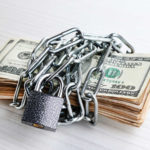The Dow hit a new high of 19,000 in the wake of Donald Trump’s election, and the S&P 500 and Nasdaq are also at record highs.[1] Stocks like Caterpillar and U.S. Steel have surged in anticipation of Trump’s plan to rebuild America’s infrastructure. Pharmaceutical stocks, such as Merck and Pfizer, have risen in the hope that a Trump administration will not focus as much attention on controlling the price of medications as a Clinton administration. Even bank stocks, such as JP Morgan Chase and Goldman Sachs have risen with the belief that Trump will be more lenient to financial firms, possibly even revoking the Dodd-Frank Act.[2] Nevertheless, the stock market has a long history of being highly capricious. Furthermore, the stock market does not appear to accurately reflect America’s weakest economic recovery since 1949.[3] In fact, president and chief investment strategist of Yardeni Research, Ed Yardeni, has declared to CNBC, “These markets are all rigged, and I don’t say that critically. I just say that factually.”[4]
Lu Wang and Jennifer Kaplan write for Bloomberg:[5]
If you sold every share of every company in the U.S. and used the money to buy up all the factories, machines and inventory, you’d have some cash left over. That, in a nutshell, is the math behind a bear case on equities that says prices have outrun reality.
The concept is embodied in a measure known as the Q ratio developed by James Tobin, a Nobel Prize-winning economist at Yale University who died in 2002. According to Tobin’s Q, equities in the U.S. are valued about 10 percent above the cost of replacing their underlying assets – higher than any time other than the Internet bubble and the 1929 peak.
Founder and chairman of Smithers & Co., Andrew Smithers, warns that U.S. stocks are about 80% overvalued.[6] Director of Marc Faber Ltd., Marc Faber, announced to CNBC that “We’re all on the Titanic.”[7] Financial investment author who correctly predicted the collapse of 1999 and 2007, Dale Davidson, has cautioned, “There are three key economic indicators screaming SELL. They don’t imply that a 50% collapse is looming – it’s already at our doorstep.”[8] And co-founder of the Quantum Fund with George Soros and creator of the Rogers International Commodities Index, Jim Rogers, has warned, “A $68 trillion ‘Biblical’ collapse is poised to wipe out millions of Americans.”[9] In fact, Carl Icahn and George Soros have gone so far as to actively short the stock market.[10][11]
Yet it is not only the U.S. stock market that is overpriced. In 2016 the Bank of Japan (BOJ) doubled its exchange traded funds (ETF) purchases in the Japanese Nikkei, setting the BOJ on a path to become the top shareholder in 55 companies by the end of 2017.[12] Already, the Bank of Japan owns 55% of Japanese ETFs and is a top shareholder in at least 200 of the 225 companies within the Nikkei.[13] Sean Ross reports, “Through these policies, the BOJ risks creating a very big asset bubble. Market analysts would say the Nikkei is detached from the fundamentals, much like the American technology sector in the late 1990s or the Japanese real estate market in the late 1980s.”[14]
Also, in 2015 China’s stock market bubble popped, resulting in 1/3 of the value of A-shares on the Shanghai Stock Exchange being lost within a month. By mid-July, the Shanghai stock market had fallen 30% over three weeks. Despite government efforts to stabilize the market, stock prices continued to fall. On August 24, 2015, the Shanghai index fell another 8.48%. Nevertheless, by 2017 the Shanghai Composite Index had stabilized around 3,000 points, which is 50% more than before the bubble.[15]
Clearly, the stock market remains a high-risk investment. Overpriced stocks and artificially manipulated markets, give rise to the threat of a sudden and severe market correction. As such, the stock market cannot be the financial refuge that we seek.
This article is excerpted from the paper “Seeking Refuge in a Precarious Economy.”
Free Downloads
Share...
1. La Monica, Paul. “Stunning! Dow Hits New High of 19,000 as Trump Rally Continues.” CNN: Money, November 22, 2016. Accessed January 24, 2017. http://money.cnn.com/2016/11/22/investing/dow-trump-19000-stocks-alltime-highs.
2. Ibid.
3. Morath, Eric. “Seven Year Later, Recovery Remains the Weakest of the Post-World War II Era.” The Wall Street Journal, July 29, 2016. Accessed January 24, 2017. http://blogs.wsj.com/economics/2016/07/29/seven-years-later-recovery-remains-the-weakest-of-the-post-world-war-ii-era.
4. Crudele, John. “Stock Market Rigging Is No Longer a ‘Conspiracy Theory’.” New York Post, March 25, 2015. Accessed January 24, 2017. http://nypost.com/2015/03/25/us-stock-market-is-just-way-too-riggin-easy.
5. Wang, Lu and Jennifer Kaplan. “Nobel Winner’s Math Is Showing S&P 500 Unhinged From Reality.” Bloomberg: Markets, May 18, 2015. Accessed January 24, 2017. https://www.bloomberg.com/news/articles/2015-05-18/nobel-winner-s-math-shows-s-p-500-unhinged-from-reality-or-not.
6. Ibid.
7. Schaffer, Leslie. “Marc Faber: Investors are On the Titanic but There’s Still a Few Days to Travel.” CNBC, June 29, 2016. Accessed January 24, 2017. https://www.cnbc.com/2016/06/28/dr-doom-marc-faber-investors-are-on-the-titanic.html.
8. Yastine, J.L. “80% Stock Market Crash to Strike in 2017, Economist Warns.” The Sovereign Investor, January 24, 2017. Accessed 24, 2017. http://thesovereigninvestor.com/exclusives/80-stock-market-crash-to-strike-in-2016.
9. Berwick, Jeff. “First Soros… Now Jim Rogers Predicts Trillion-Dollar ‘Biblical’ Crash.” The Dollar Vigilante Blog, May 24, 2016. Accessed January 24, 2017. https://dollarvigilante.com/blog/2016/05/24/first-soros-now-jim-rogers-predicts-trillion-dollar-biblical-crash.html.
10. Matthews, Chris. “Carl Icahn Is Betting Big On a Stock Market Crash.” Fortune: Finance, May 10, 2016. Accessed January 24, 2017. http://fortune.com/2016/05/10/carl-icahn-crash-stock.
11. Berwick, Jeff. “First Soros… Now Jim Rogers Predicts Trillion-Dollar ‘Biblical’ Crash.” The Dollar Vigilante Blog, May 24, 2016. Accessed January 24, 2017. https://dollarvigilante.com/blog/2016/05/24/first-soros-now-jim-rogers-predicts-trillion-dollar-biblical-crash.html.
12. Durden, Tyler. “The Bank of Japan Will Be the Top Shareholder of 55 Companies by the End of 2017.” Zero Hedge, August 14, 2016. Accessed January 24, 2017. http://www.zerohedge.com/news/2016-08-14/bank-japan-will-be-top-shareholder-55-companies-end-2017.
13. Ross, Sean. “How the Bank of Japan Now Owns 90% of the Top 10 Stocks (BOJ).” Investopedia, May 25, 2016. Accessed January 24, 2017. http://www.investopedia.com/articles/markets/052516/how-bank-japan-now-owns-90-top-10-stocks-boj.asp.
14. Ibid.
15. “2015–16 Chinese Stock Market Turbulence.” Wikipedia, Last Updated December 30, 2016. Accessed January 24, 2017. https://en.wikipedia.org/wiki/2015%E2%80%9316_Chinese_stock_market_turbulence.
Unless otherwise noted, all Scripture quotations are taken from The Holy Bible, English Standard Version, copyright ©2001 by Crossway Bibles, a publishing ministry of Good News Publishers. Used by permission. All rights reserved.









